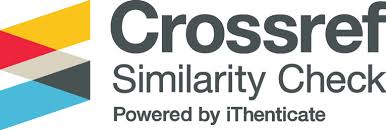Pengaruh Efektivitas Pengendalian Internal, Moralitas Individu, Budaya Organisasi, Dan Kecerdasan Spiritual Terhadap Kecenderungan Kecurangan Akuntansi
Studi Kasus Lembaga Perkreditan Desa (LPD) Kecamatan Gianyar
Abstract
Deception is a deliberate fallacy. In the scope of accounting, fraudulent design is a deviation from the accounting method that should be applied in an entity. Dishonesty can also occur because of other aspects related to accounting dishonesty, namely in regulations, people's etiquette, body customs and mental intellect. This research aims to identify the effects of regulatory effectiveness, people's etiquette, body habits and mental intelligence on accounting dishonesty tendencies. The population in this research is the employees of LPD Gianyar Regency with the illustrations used by 120 respondents. The data analysis method used in this research is multiple linear regression, coefficient of assurance, experiment t and experiment F. Based on the research results, it can be seen that: (1) the effectiveness of tax regulation in influencing the negative and significant to the tendency of accounting dishonesty, where the regression coefficient by -0.252 and sig 0.020.( 2) people's etiquette has a significant negative effect on accounting dishonesty tendencies, where the regression coefficient is -0, 311 and sig 0.009. (3) corporate customs have a significant negative effect on accounting dishonesty tendencies , where the regression coefficient is 0.321 and sig 0.021. (4) psychological intelligence has a significant minus effect on accounting dishonesty tendencies, where the regression coefficient is 0.144 and sig 0.017. The free elastic effect on accounting dishonesty bias is 52, 6%. Suggestions that can be submitted by researchers are the next researchers, so that they can examine and examine more deeply other factors that were not monitored in this research that could influence the tendency of the formation of accounting dishonesty.
References
albrecht, W. Steve dan Chad O. Albrecht. 2004. Fraud Examination And Prevention. Mason, Ohio: Thonpson South-Western.
Anita Dewi, Ni Komang Ayu, and Made Gede Wirakusuma. 2019. “Pengaruh Moralitas Individu, Pengendalian Intern Dan Budaya Etis Organisasi Terhadap Kecenderungan Kecurangan Akuntansi.” E-Jurnal Akuntansi 29(1): 64.
Chandrayatna, Praditya, and Ratna Sari. 2019. “Pengaruh Pengendalian Internal , Moralitas Individu Dan Budaya Etis Organisasi Pada Kecenderungan Kecurangan Akuntansi. Fakultas Ekonomi Dan Bisnis Universitas Udayana ( Unud ), Bali , Indonesia.” E-Jurnal Akuntansi Universitas Udayana 27(2): 1063–93.
Cinthyani, Luh Putu Rida, and Ni Luh Gede Erni Sulindawati. 2020. “Faktor – Faktor Yang Mempengaruhi Kecenderungan Kecurangan Akuntansi Pada LPD Di Kecamatan Seririt.” Jurnal ASET (Akuntansi Riset) 11(1): 159–66.
Cressey, D. R. 1953. Other People’s Money: A Study In The Social Psychology Of Embezzlement. In Free Press. Glencoe, III.
Ekayanti, Ni Wayan, Edy Sujana, and Made Arie Wahyuni. 2017. “Pengaruh Budaya Organisasi, Gaya Kepemimpinan Dan Pengalaman Kerja Terhadap Efektivitas Sistem Pengendalian Intern Pada Lembaga Perkreditan Desa (LPD) Se-Kecamatan Payangan Kabupaten Gianyar.” e-Journal S1 Ak Universitas Pendidikan Ganesha 7(1): 1–12.
Hage, J., & Posner, B.Z. 2015. “Religion, Religion, Religisity, and Leadership Practices: An Examination in the Lebanese Workplace.” Leadership Organzation Development Journal.
Karyono. 2013. Forensic Fraud. Yogyakarta.
Melisa, and Ni Luh Putu Diana. 2017. “Pengaruh Kecerdasan Spiritual Dan Budaya Tri Hita Karana Terhadap Kecenderungan FRAUD Akuntansi Pada Satuan Kerja Perangkat Daerah Kabupaten Badung.” 8(2).
Nusabali.com. 2015. “Trio Tersangka Korupsi LPD Suwat Ditahan.” https://www.nusabali.com/berita/11312/trio-tersangka-korupsi-lpd-suwat-ditahan (November 25, 2020).
Pratiwi, Ni Luh Gede Dandy Adi, and I Gusti Ayu Nyoman Budiasih. 2020. “Pengendalian Internal, Budaya Organisasi, Dan Kecenderungan Kecurangan Akuntansi Di LPD Kabupaten Tabanan.” E-Jurnal Akuntansi 30(11): 2907.
Sukmadiani, Ni Luh Sri. 2016. “Pengaruh Akuntabilitas Penyaluran Bantuan Sosial, Moralitas, Dan Budaya Organisasi Dengan Konteks Lokal Menyama Braya Terhadap Kecenderungan Kecurangan.” Jurnal Akuntansi Profesi 7(2): 45–55.
Thoyibatun, siti. 2009. “Faktor-Faktor Yang Berpengaruh Terhadap Perilaku Tidak Etis Dan Kecenderungan Kecurangan Akuntansi.” Jurnal Ekonomi dan Keuangan STIESIA 16(2).
Tuanakotta, T.M. 2007. Akuntansi Forensik Dan Audit Investigatif. Jakarta: Lembaga Penerbit Fakultas Ekonomi Universitas Indonesia.
Widiutami, Ni Putu Sri. 2017. “Pengaruh Efektivitas Pengendalian Internal Ketaatan Aturan Akuntansi, Dan Komitmen Organisasi Terhadap Kecenderungan Kecurangan Fraud Akuntansi (Studi Empiris Pada Lembaga Perkreditan Desa Di Kabupaten Buleleng).” Jurnal Universitas Pendidikan Gnesha 7(1).







